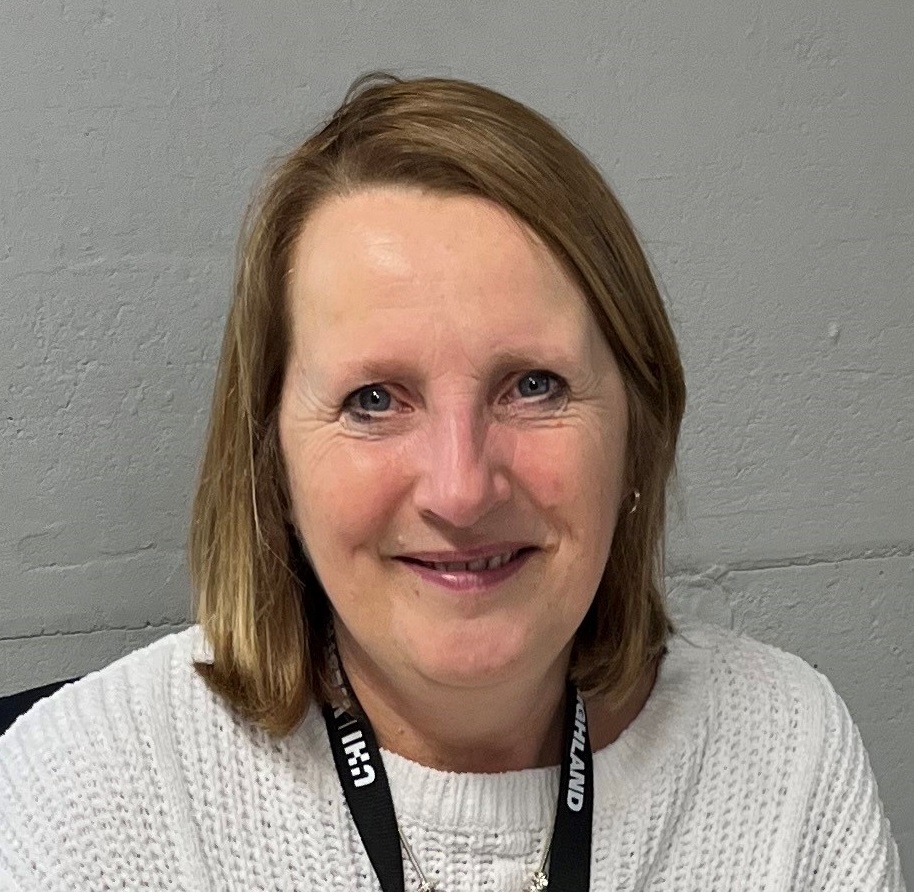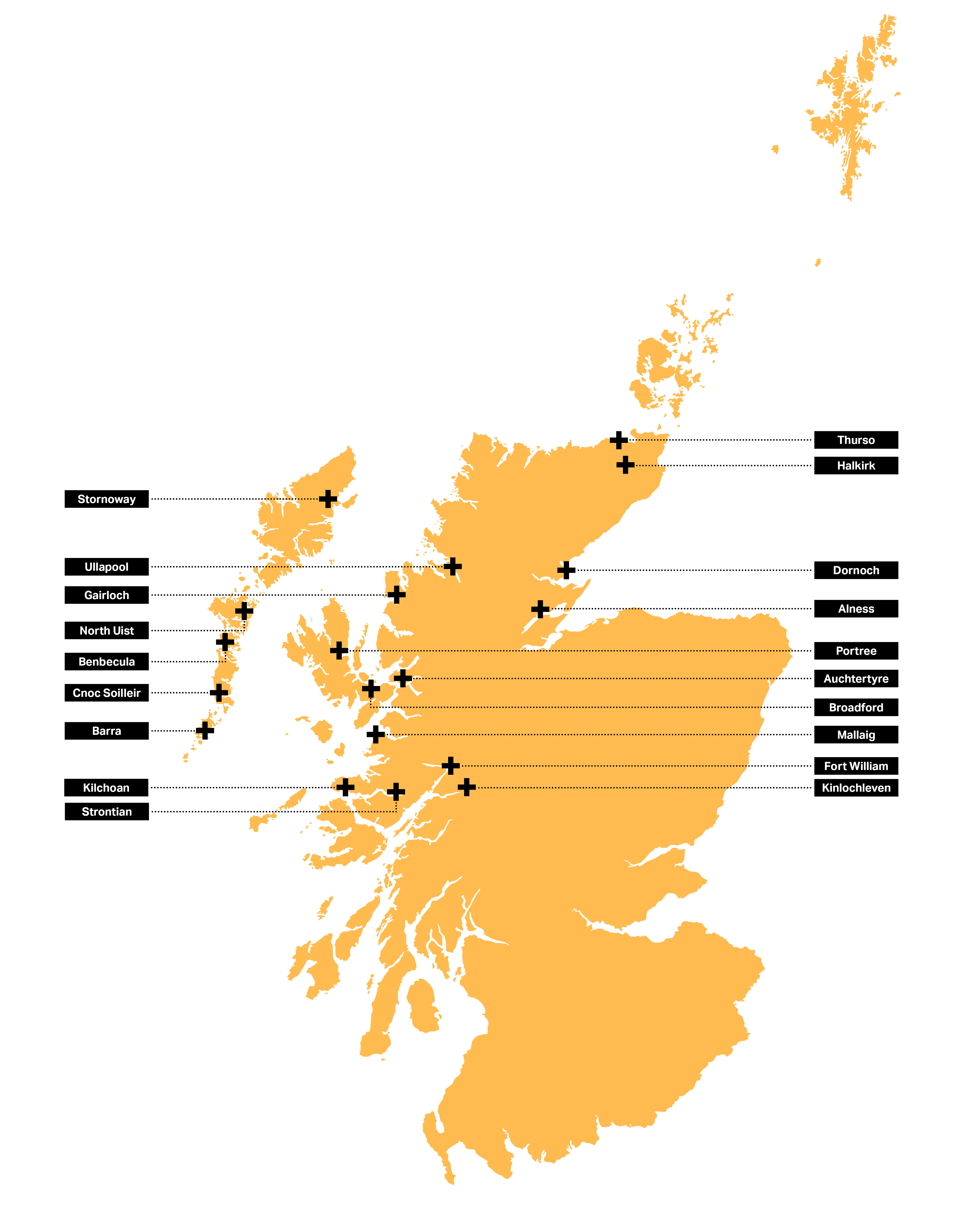24 IN 24 BLOG SERIES – SUPPORTING RURAL COMMUNITIES
 This week’s blog is by Susan MacLean, Engagement Manager, with UHI North, West and Hebrides. Colleges Scotland is marking the diversity and variety of work that Scotland’s 24 colleges do with our blog series, 24 in 2024.
This week’s blog is by Susan MacLean, Engagement Manager, with UHI North, West and Hebrides. Colleges Scotland is marking the diversity and variety of work that Scotland’s 24 colleges do with our blog series, 24 in 2024.
At UHI North, West and Hebrides, we care passionately about our regions and embody the UHI mission to have a transformational impact on our people, communities, and economies. We are rooted in the culture, location and economic needs of our communities, and are committed to providing flexible and supported learning from access level to degree and beyond, allowing people to live, work and study without leaving the communities they care about.
This was a major driver for our recent merger, which saw UHI North, West and Hebrides form on 1st August 2023. Communities are the beating heart of the Highlands and Islands, and we needed to create the capacity to better meet their needs. Our goal is to connect these communities to create a more equitable experience for students across the region, increase access to learning opportunities, and provide a platform for growth to enable us to realise the opportunities associated with energy, renewables, and aquaculture, to name but a few.
 With 19 campuses and centres in towns and villages across the North and West Highlands, Skye and Outer Hebrides – an area larger than Wales - plus an online community spanning the UK and beyond, our communities are diverse. They face challenges associated with depopulation, transport and accommodation, but they also have huge opportunities, optimism and people passionate about making a difference.
With 19 campuses and centres in towns and villages across the North and West Highlands, Skye and Outer Hebrides – an area larger than Wales - plus an online community spanning the UK and beyond, our communities are diverse. They face challenges associated with depopulation, transport and accommodation, but they also have huge opportunities, optimism and people passionate about making a difference.
A recent report by Highlands and Islands Enterprise found an increasing number of young people want to live and work in the region. Almost 70% surveyed agreed that people who stay are lucky to be able to work or study locally.
That’s key for us – we need to make sure we get it right for these people.
So, how does a college like ours stay connected with such diverse communities?

It starts with our local staff, campuses and centres, which are deeply immersed in their communities. Traditional campuses in places like Fort William, Stornoway, and Thurso are complemented by smaller centres in community spaces like secondary schools, museums, community centres, and even harbours. These locations provide safe and supportive places for all our students to study, regardless of their mode of study.
Our staff know their communities, they live there, they work there, and they contribute to their success. It’s not just about being the ‘face of the college’ locally, it’s about being part of the fabric of these communities. Many staff sit on community councils, volunteer for local organisations, or participate in local groups. Our staff are well-known and it’s not unusual for them to be approached while their doing their weekly food shop. They engage with local schools, speak to employers, carry out surveys, and build relationships with local groups.
These staff are a vital cog in what makes UHI North, West and Hebrides work. Their insight informs our thinking on curriculum, enterprise and engagement activity, ensuring we have an offer that meets community needs. This can range from local leisure programmes tackling loneliness to developing training courses for businesses or launching a new full-time programme. We combine local intelligence with regional and sector-wide insights to ensure we remain responsive to opportunities that benefit our communities.
Applied research in our communities is also helping to address local, national and international challenges. Our research on peatland science helped The Flow Country, an expansive blanket bog spanning Caithness and Sutherland, secure UNESCO World Heritage Site status. The area is leading research on climate change and biodiversity loss and has the potential to create new skills and job opportunities linked to the land and sustainable tourism and hospitality.
But above all this, our real strength lies in our personalised approach to learning. We’re proud to be providing people with access to learning at all levels, from senior phase courses through to access level programmes, practical, vocational training, through to degree and beyond, in their local communities. They can choose from face-to-face, practical study in our campuses and centres, work-based study, or online via our virtual classroom, as well as full-time and part-time options.
This flexibility – along with a high level of support – is critical for a college like us, where many of our students combine study with work, family, or other commitments. We also know things like childcare, transport and accommodation can be barriers in our communities, so we want to make it as easy as possible for people to study.
I recently met Emma, from Thurso, an SVQ3 hairdressing student. After health issues, we helped her back into study by tailoring the programme to suit her. She came in one day a week, gradually building up her days and tailoring the content to suit her needs. She said this flexible, individually tailored approach was the only reason she succeeded.
In another example, Charlotte, from Skye, completed her Honours Degree in Energy Engineering by studying online and using our local centre in Portree. During her studies, she did an internship that led to a graduate position with SSE, enabling her to remain in the Highlands and Islands to start her career.
Our personalised approach builds our students’ confidence and enables them to achieve more than they ever thought possible when they first joined us. By supporting and empowering our students in this way, we create a close-knit college and university community which will always be at the heart of what makes UHI truly special.


